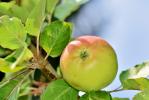
H2020 URBIOFIN Project: Demonstration of an innovative integrated biorefinery for the transformation of Municipal Solid Waste (MSW) into new BioBased products (URBIOFIN)
- Type Project
- Status Filled
- Execution 2017 -2022
- Assigned Budget 10.946.366,03 €
- Scope Europeo
- Main source of financing Horizon 2020
- Project website URBIOFIN
WP1 Preliminary actions for the design of the urban biorefinery
In this work package, the feedstock specifications for the project's core technologies were established. Preliminary actions also included characterization and selection of the best OFMSW for the URBIOFIN biorefinery, an overall process design, and a preliminary LCA assessment. An in-depth study established the requirements that the bioproducts to be obtained from the URBIOFIN Biorefinery must meet, as well as the assumptions for the preliminary model.
WP2 Conversion of OFMSW to bioethanol as a building block for bioethylene production
In this WP, the production of 2G bioethanol from OFMSW has been improved, and the operating costs of this process have been reduced by 20%. The demonstration plant was adapted to reduce energy costs, and an enzyme cocktail was developed to increase bioethanol yield by optimizing process conditions. At the same time, the feasibility of continuously converting the produced alcohol into bioethylene using a catalytic process on a semi-industrial scale was demonstrated.
WP3 Conversion of OFMSW to VFAs for PHA production
A demonstration-scale 2-phase anaerobic digestion system fed with OFMSW (and vinasse liquid) was operated semi-continuously, achieving a VFA concentration over 20 g/L in the first stage (acidogenic) and an 80% destruction of VS fed to the second stage (methanogenic). Production processes were developed for mcl-PHA and FA elongation based on OFMSW as feedstock supplemented with nutrients and ethanol or VFA as co-feed. The process to obtain scl-PHA has been successfully scaled up obtaining 59% PHA in the biomass with an extraction yield of 92.78% and a purity of 90%.
WP4 Bioconversion of biogas to biomethane and value-added products
In this WP, a pilot-scale system for biogas valorization was optimized. This system includes: i) a photosynthetic biogas upgrading unit, coupled with a biological stage for siloxane removal, and ii) a two-stage unit for anoxic biogas desulfurization, followed by bioconversion of CH₄ into PHA. The final biomethane obtained complied with current European legislation (CH₄: ~95%, CO₂: 2-3%, N₂: 2-3%, and H₂S: 0%). Furthermore, microalgal biomass productivity reached an average production of 19 g m₂ d₁, representing 5.2 kg of microalgae per day. Up to 97% of methane was removed, obtaining a maximum PHA concentration of 131.6 mg L₁.
WP5 Final applications and industrial validation of the developed bio-based products
Experimental activities related to the production and validation of bio-based products were carried out. After reaching steady-state conditions in URBIOFIN's pilot plants, optimized blends and formulations were produced with intermediate materials from the URBIOFIN biorefinery. The results were different bio-based products, and validation trials determined the final products' potential for different end-user purposes.
WP6 Urban Biorefinery Integration: Economic, Environmental, and Regulatory Assessments
The biorefinery model was updated and further developed, incorporating new process developments and results from laboratory-scale and demonstration activities conducted by partners during project implementation. The LCA, LCC, and s-LCA of the URBIOFIN biorefinery were completed. A complete review and update were conducted regarding legislative and regulatory requirements.
WP7 Communication, dissemination and exploitation activities
WP7 achieved effective communication, dissemination, and exploitation of project results. All KPIs were fully met, and most significantly exceeded their target values. All deliverables, both those related to communication and dissemination and those related to intellectual property rights and commercial exploitation, were duly delivered. Ultimately, all milestones were met.
WP8 Project Management
The main objective of this Work Package was to coordinate and ensure the optimal implementation of the URBIOFIN project. This involved overseeing all work packages and ensuring the proper workflow throughout the project. The processes and Work Packages involved in project development are interconnected, and their coordination was crucial for its proper implementation.
Due to rapid population growth, municipal solid waste (MSW) has contributed significantly to the total amount of waste generated by our society. Today, in Europe, each inhabitant generates, on average, 0.5 tons of MSW per year, with an annual increase of 10%. About 40–50% of this represents organic waste. This organic fraction primarily contains carbohydrates, proteins, and lipids, which are useful raw materials that can be converted into valuable products.
Their valorization will help address environmental pollution and contribute to the transition from a linear economy to a renewable, circular economy. Digestion and composting have contributed to reducing the biodegradable fraction of MSW sent to landfills. The low economic value of compost and biogas is limiting the sustainable implementation of separate supply systems, as increased environmental taxes (on waste) are needed to address significant logistics costs.
New bio-based products can help improve the environmental and socioeconomic sustainability of waste treatment. The objective of URBIOFIN was to demonstrate the technical, economic, and environmental feasibility of converting the organic fraction of MSW (OFMSW) on a semi-industrial scale (10 T/d) into: chemical components (bioethanol, volatile fatty acids, biogas), biopolymers (polyhydroxyalkanoates [PHAs] and biocomposites), and additives (microalgae hydrolysate for biofertilizers).
Using the concept of a biorefinery applied to urban waste (Urban Biorefinery), URBIOFIN leveraged OFMSW as a raw material to produce various marketable products with value for agriculture and cosmetics. URBIOFIN offers a viable and more sustainable alternative to the current treatment of OFMSW.
Due to rapid population growth, municipal solid waste (MSW) has contributed significantly to the total amount of waste generated by our society. Today, in Europe, each inhabitant generates, on average, 0.5 tons of MSW per year, increasing at an annual rate of 10%. About 40–50% of this waste is organic. This organic fraction primarily contains carbohydrates, proteins, and lipids, which are useful raw materials that can be converted into valuable products.
Its valorization will help address environmental pollution, but it also contributes to the transition from a linear to a circular renewable economy. Digestion and composting have contributed to reducing the biodegradable fraction of MSW sent to landfills. The low economic value of compost and biogas is limiting the sustainable implementation of separate supply systems, as increased environmental (waste) taxes on citizens are necessary to address significant logistical costs.
New bio-based products can help improve the environmental and socioeconomic sustainability of waste treatment. The objective of the URBIOFIN project is to demonstrate the technical, economic, and environmental feasibility of converting the organic fraction of MSW (FORSU) into chemical components (bioethanol, volatile fatty acids, biogas), biopolymers (polyhydroalkanoate and biocomposites), or additives (hydrolyzed microalgae for biofertilizers) on a semi-industrial scale (10 T/d).
Using the concept of a biorefinery applied to urban solid waste (Urban Biorefinery), URBIOFIN will exploit urban solid waste (USU) as a raw material to produce various marketable products for a variety of markets, including agriculture and cosmetics. URBIOFIN will offer a viable and more sustainable alternative to current urban solid waste treatment.
The URBIOFIN demonstration demonstrated progress beyond the state of the art in the following areas:
- Bioethanol production from OFMSW and its use as a chemical building block, where bioethanol produced from OFMSW was used as feedstock for the production of "second-generation" bioethylene for gas maturation applications.
- Production of VFA from the anaerobic digestion of OFMSW and its elongation in MCFA to produce short- and medium-chain PHA biopolymers. PHA biopolymers represent a higher-value product from the two-step anaerobic digestion of OFMSW, rather than traditional biogas production for bioenergy generation.
- Biogas upgrading using a microalgal photobioreactor for the production of pure biomethane, with the construction and operation of a high-speed algae pond reactor. The upgraded biomethane was further treated in a biological polishing unit to remove volatile methylsiloxanes.
- Production of biofertilizers from microalgae and OFMSW. Microalgae cultivated in FRS digestate demonstrated the potential of this biomass for the production of an amino acid-rich intermediate product. The development of bio-based fertilizers, both liquid and solid, will contribute to partially replacing commonly used mineral fertilizers.
- PERSEO BIOTECHNOLOGY S.L.







